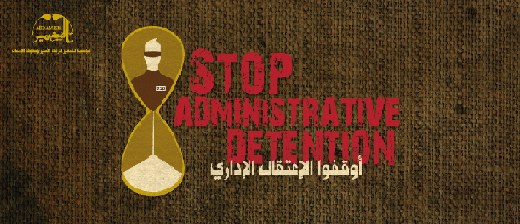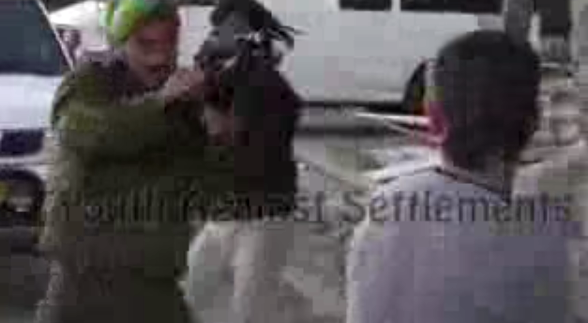Tag: Detention
-
Update on Hunger Strikes: Administrative Detainees put in Solitary Confinement, Denied Salt Supplements
7th May 2014 | Addameer Prisoner Support and Human Rights Association | Ramallah, Occupied Palestine The latest wave of mass hunger strikes continue for the 14th day as Palestinian prisoners demand the end of the policy of administrative detention. Administrative detention is a procedure in which Palestinians are arbitrarily arrested and detained without charge or trial based…
-
15-year-old Palestinian violently arrested by Israeli forces
30th April 2014 | International Solidarity Movement, Khalil Team | Hebron, Occupied Palestine On the 27th of April, four Palestinian boys were detained in al-Khalil (Hebron) at checkpoint 55. Three YAS (Youth Against Settlements) members arrived at the scene, and tried to document the incident. While filming they were harassed by several settlers from nearby illegal…
-
Mass Hunger-Strike Launched by Palestinian ‘Administrative Detainees’
24th April 2014 | Addameer Prisoner Support and Human Rights Association | Ramallah, Occupied Palestine Addameer Prisoner Support and Human Rights Association can confirm the launch of a mass open-ended hunger strike involving over 100 Palestinian political detainees. All those involved are being held under administrative detention, which is a procedure whereby detainees are held without charge…


